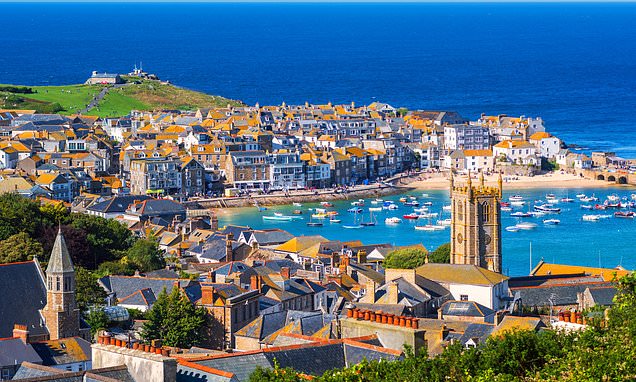
The chancellor unveiled today that more than 70,000 holiday rentals will bear the brunt of his Budget National Insurance cuts.
Jeremy Hunt has officially announced the scaling back of financial benefits that owners of secondary residences, rented out in popular holiday destinations, currently enjoy.
The anticipated outcome of this reduction is a £300 million boost to the Treasury’s funds. However, critics caution that such a move could severely impact regions heavily reliant on tourism, potentially driving potential renters away from the market.
Alistair Handyside, the proprietor of Higher Wiscombe, a collection of upscale holiday cottages in East Devon, and the head of the Professional Association of Self-Caterers, strongly criticized Mr. Hunt’s decision to eliminate tax relief for holiday rentals. He expressed his dismay, stating that these allowances were hard-won benefits designed to support small businesses. Handyside emphasized that the sudden removal of these perks without any explanation or roadmap for the future is deeply disappointing.
He vehemently contested the government’s claim that this measure would generate the projected revenue, dismissing it as baseless. Handyside predicted that the move would not sway undecided voters but would instead alienate the owners of the 127,000 affected properties. Moreover, he highlighted the detrimental impact on the visitor economy, as a decrease in holiday rentals would lead to fewer tourists frequenting local pubs and attractions, painting a bleak picture of the consequences.
Defined as properties owned in addition to one’s primary residence and rented out to short-term tenants, holiday lets are treated as a business for tax purposes, unlike buy-to-let properties classified as investments by Revenue & Customs. This distinction affords owners of holiday lets more significant tax advantages, including deductions for various expenses such as mortgage interest, fixture replacements, cleaning services, and utility bills.
Additionally, holiday lets are subject to business rates instead of council tax, potentially resulting in lower overall costs. However, business rates are applicable only to properties rented out for a minimum of 140 days annually. Notably, Wales recently raised the minimum occupancy requirement for holiday lets from 70 to 182 days, leading to higher tax liabilities for owners unable to meet this threshold.
Furthermore, owners of holiday lets face a reduced tax burden when selling their properties, with profits taxed at a mere 10 percent under Business Asset Disposal Relief. In contrast, buy-to-let landlords are subject to capital gains tax rates of 18 or 28 percent, depending on their tax bracket.
Moreover, income generated from holiday lets can be directed into pension funds, aiding owners in building retirement savings while mitigating tax obligations.




